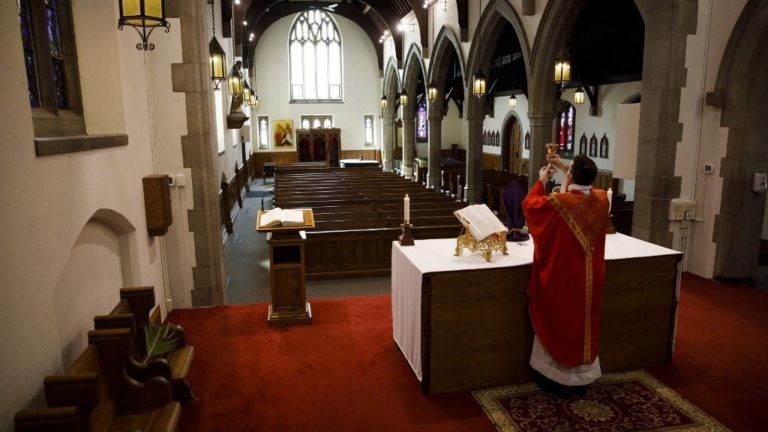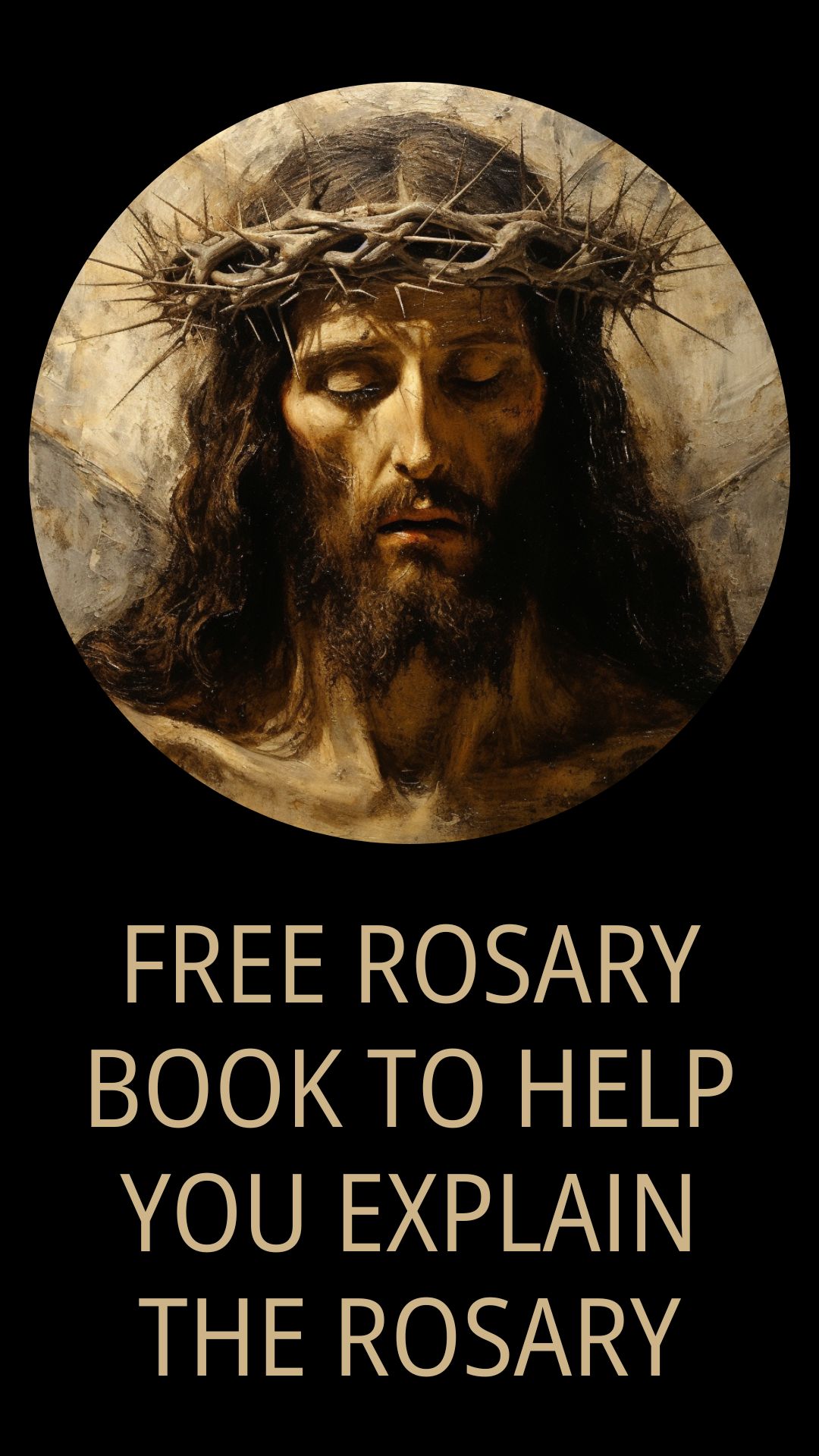CAN THE ‘WORLD’ BE SAID TO BE EXPERIENCING ‘EUCHARISTIC FAMINE’ AT THIS TIME?
First Reading: Deuteronomy 8:2-3,14-16
Responsorial Psalm: Ps. 147:12-15,19-20
Second Reading: 1 Corinthians 10:16-17
Gospel Reading: John 6:51-58
_______________________________________
It is a truism that every living organism on earth needs some basic things to stay alive. The traditional list of immediate “basic needs” of man is food (including water), shelter and clothing. Food (i.e., proper nutrition) helps in providing the body with sufficient energy to function properly. Energy is needed for the body metabolism – to grow, reproduce, move, and to work etc. It follows then, that without food (that is, proper nutrition), our body cannot survive. And when hunger or scarcity of food becomes widespread over time, it becomes understood as famine. According to Wikipedia, “famine is a widespread scarcity of food, caused by several factors including war, inflation, crop failure, population imbalance, or government policies. This phenomenon is usually accompanied or followed by regional malnutrition, starvation, epidemic, and increased mortality.” In our world today, the pandemic of Covid-19 has led to a scarcity of food (and increased rate of hunger across the globe) among many other defects. It is no doubt that hunger has killed many in our world as we see today; nevertheless, something worse than hunger or famine lingers around the corner and destroys the souls of men – it is the hunger for the spiritual food received through the Word of God and the Sacraments, a fulfilment of the prophecy of Amos: “The days are coming – declares the Lord Yahweh – when I shall send a famine on the country, not hunger for food, not thirst for water, but famine for hearing Yahweh’s word.” (Amos 8:11). This Word of God, the Bible tells us, was became flesh in the Person of Jesus Christ our Lord. And today, we hear Christ tells us in the gospel reading: “I am the living bread which has come down from heaven. Anyone who eats this bread will live forever, and the bread that I shall give is my flesh, for the life of the world.” This is what we celebrate today, the Solemnity of the Most Holy Body and Blood of Christ – “Corpus Christi.”
Corpus Christi (Body and Blood of Christ) is said to be a Eucharistic Solemnity, or better still, the solemn commemoration of the institution of that Sacrament. It is, moreover, the Church’s official act of homage and gratitude to Christ, who by instituting the Holy Eucharist gave to the Church her greatest treasure. Holy Thursday, assuredly, marks the anniversary of the institution, but the commemoration of the Lord’s passion that very night suppresses the rejoicing proper to the occasion. Today’s observance, therefore, accents the joyous aspect of Holy Thursday, recognizing the real presence of Jesus in the species of bread and wine when the words of consecration are pronounced by a validly ordained Priest in Holy Mass. Therefore, the Sacrament of the Body and Blood of Jesus Christ (the Holy Eucharist) is the greatest treasure given to the Church by Christ himself at the last supper as food for our souls when he orders: “DO THIS IN MEMORY OF ME” (Lk. 22:19; 1Cor. 11:24-25)
Beginning with today’s first reading, we hear of the manna the “ancestors” ate in the wilderness. It is important to understand that the manna of the Old Testament is a prototype of the Eucharist of the New Testament. God feeds the hungry Israelites struggling in the desert with manna (bread from Heaven); the food of angels (cf. Psalm 78:25). We are told that God humbled them, he made them feel hunger, he fed them with manna which neither they nor their fathers had known, to make them understand that man does not live on bread alone but that man lives on everything that comes from the mouth of the Lord. In consonance, Paul calls manna in the Old Testament “supernatural food” in 1 Corinthians 10:3, and how much more supernatural the Eucharist is. In that same chapter, to drive home his point, Paul rhetorically speaks of the Eucharistic bread and the wine as a participation in the Body and Blood of Christ.
The foregoing was the doctrine taught by Christ to the hungry Jews of his time and they failed to understand him, rendering it a very hard teaching, and many of them deserted him. The context of that passage (Jn. 6: 51-58) would be well understood when we read from the beginning of that chapter. The chapter opens up with the miracle of Jesus – the multiplication of loaves and fishes. We read that, after feeding them to their satisfaction, they began to follow Jesus hoping that he would give them more food to eat. Here, they were concerned with the material benefit of filling their stomachs and quenching their hunger. To teach them that man does not live on bread alone but on every word that proceeds from the mouth of God, Jesus (in verse 26 and 27) had to tell them the bitter truth. “In truth, I tell you, you are looking for me not because you have seen the signs but because you had all the bread you wanted to eat. Do not work for food that goes bad, but work for food that endures for eternal life, which the Son of man will give you, for on him the Father, God Himself, has set his seal. Then they said to him, ‘What must we do if we are to carry out God’s work?” It was in this context that Jesus made them understand that they must make efforts to seek for the spiritual food in order to achieve life in its fullness. Thus, he came up with the doctrine of his Body and Blood (which we read today in the Gospel). They failed to understand what He meant by saying “Unless you eat the flesh of the Son of Man and drink his blood, you have no life in you”. According to the Gospel Reading: “The Jews quarrelled among themselves, saying, ‘How can this man give us his flesh to eat?’ Jesus said to them, Amen, Amen, I say to you unless you eat the flesh of the Son of Man and drink his blood, you do not have life within you. Whoever eats my flesh and drinks my blood has eternal life, and I will raise him on the last day. For my flesh is true food, and my blood is true drink. Whoever eats my flesh and drinks my blood remains in me and I in him. Just as the living Father sent me and I have life because of the Father, so also the one who feeds on me will have life because of me. This is the bread that came down from heaven. Unlike your ancestors who ate and still died, whoever eats this bread will live forever.”
Dear friends in Christ, the words of Christ are crystal clear. He wasn’t speaking metaphorically or allegorically; he was speaking of his true body and blood under the appearances of bread and wine. This we see him do at the Last Supper: “TAKE AND EAT…THIS IS MY BODY WHICH WILL BE GIVEN UP FOR YOU; TAKE AND DRINK…THIS IS MY BLOOD…” (Mk. 14:22-25; Lk. 22:18-20; 1Corinthians 11:23-25). In other words, Christ is telling us that in order to escape spiritual death, we must eat his Body and Blood which is made possible by the power of God under the appearance of bread and wine, when the priest pronounces the same words of Christ at the Last Supper. Here, the substance of the bread and wine are changed into the Body and Blood of Christ – Transubstantiation.
It is unfortunate, to note that the real presence of Christ has been rejected and ‘attacked’ doctrinally by so many ‘false teachers,’ even in Catholicism. As a result of this rejection, many Christians tend to stay ‘confidently’ without realizing the spiritual hunger and famine that have befallen their souls, and as a result, dying spiritually. Some can go a very long time and even soaked in sin without thinking of receiving the Body and Blood of Christ. Sadly, the pandemic of Covid-19 made it more difficult for the members of the Church to meet and physically and receive the Holy Eucharist. While a few make effort to follow up with the transmission of the Holy Mass via the internet to hear the Word of God and receive Christ spiritually through the ‘Spiritual Communion’ Prayer, many others do not, neither do they even contemplate and share the Word of God. As horrible as this is, we can say that it is a clear case of the fulfilment of the prophecy of Amos as cited above – a spiritual famine of the word of God, the Eucharist, and the other Sacraments.
Sad as it is, some struggle and make strong efforts to feed and receive palliatives from the government and other charity organizations and individuals but make no effort to receive Christ spiritually or even hear His Word. Inasmuch as we are material beings and we need material foods to survive; however, we must not stop at the material level, but advance spiritually and benefit from what the Holy Spirit has to offer through the Word of God and the Holy Eucharist since we are like the ‘Israelites in the wilderness’ (described in the first reading) but on a sojourn to our heavenly homeland (paradise) in need of the daily ‘Eucharistic Manna.’
Above all, today’s feast calls us to consider ourselves privileged for beholding this great revelation of God, for understanding the teachings of Christ Jesus – the Eucharist. We must note that if we remove the Eucharist from our faith or deny the real presence of Christ in the Eucharist, our religion becomes empty, and cannot function; we need the daily effects of the Eucharist to continue to function spiritually. Therefore, we are called to continue to praise and glorify the Lord like the Psalmist of the day (Ps 147:12-13, 14-15, 19-20): O praise the Lord Jerusalem…He feeds us with FINEST WHEAT (i.e. the Eucharist), He has made known his statutes and his ordinances to Israel (We are the Israelites of today – God’s chosen people). He has not done thus for any other nation; his ordinances he has not made known to them.
May the Holy Eucharist continually satisfy our deepest hunger and thirst for God in this time of pandemic and lockdown. Amen
Shalom!
© Fr. Chinaka Justin Mbaeri, OSJ
Paroquia Nossa Senhora de Fatima, Vila Sabrina, São Paulo, Brazil
nozickcjoe@gmail.com / fadacjay@gmail.com




